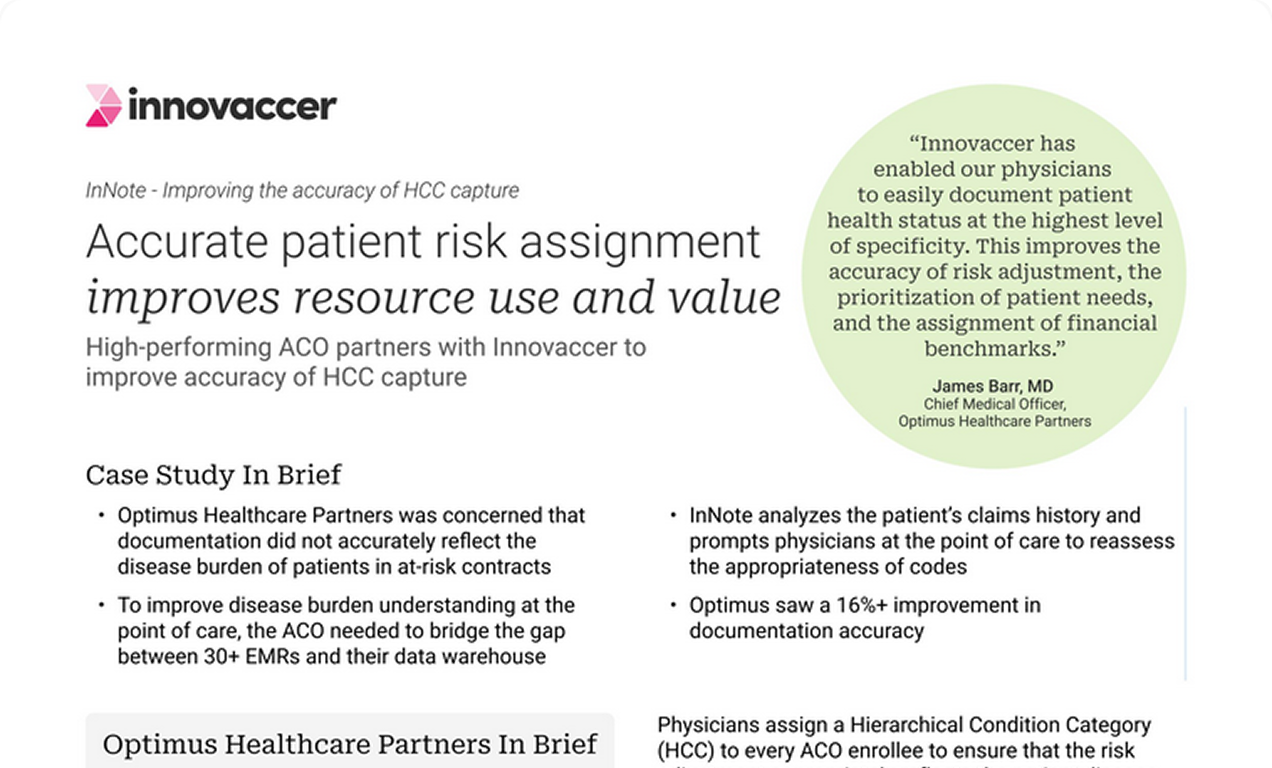Easing the burden on physicians: A new way to simplify quality reporting

The soaring high costs and utilization rates have made it essential for the US healthcare sector to make the transition to value-based care quickly. Value-based remuneration is the only way to incentivize cost-efficient quality care against more volume of services. However, to measure the quality of care, CMS needs providers to report on hundreds of quality metrics. With the advent of EHR technology, physicians are already overwhelmed with the documentation requirements. Now, the additional burden of quality reporting requirements can increase the risk of physician burnout.
Ill-equipped EHRs fuelling the problems associated with quality reporting
EHR technology, while it has brought some sophistication in the patient record documentation, it is insufficient to support quality reporting requisites alone. A study of 29 hospitals revealed that when they solely used EHRs for quality reporting, it resulted in an inaccurate depiction of the quality of care delivered.
The reason why EHRs are not able to completely support the quality reporting process is that they don’t usually have a patient matching feature. For quality reporting, patient records in the EHR need to be mapped with the information that is necessary for reporting on specific quality measures. While EHRs are comprehensive records of a patient’s medical history, they might be incapable of matching and molding that information to suit the reporting requirements.
Simplifying quality reporting with a data platform
The biggest challenge that the providers face in reporting is aggregating data from disparate sources and formatting it to submit to the payers. This is especially true for provider organizations that operate on a large scale. They have more patient data to report so it is all the more challenging for them.
To resolve this problem providers can look towards a data platform. A data platform can integrate data from different sources without manual intervention. It can automate the process of aligning patient data with specific quality measures to fulfill the reporting requirements. Automated data integration not only ensures timely completion of reporting, but it also minimizes the scope of error resulting from manual reporting.
Data gaps is another problem that providers struggle with, in the process of quality reporting. Sometimes, the data is not updated or there are missing fields in the patient records. Identifying these gaps manually can be quite a challenge. However, identifying these data points is critical for a good quality score.
In this case, a data activation platform can be of assistance. By automating the data aggregation process, the data gaps can be easily identified. Not just that, this platform also allows providers to manually fill or update the fields that are not up to date.
The road ahead
The value-based care movement is growing stronger every day and this implies that the quality reporting requirement will most likely increase. To embrace and adapt to the dynamic value-based movement, providers must seek ways to simplify the reporting methods. This will not only help them track and improve their quality of care, but it also allows them to earn more incentives, more than the traditional methods.
Providers must turn towards technology to make the quality reporting process easier and less time-consuming. They can successfully reduce the burdens of manual reporting by taking a data-driven approach. This way, they can spend more time delivering quality care rather than reporting on quality measures!
To know more about simplifying quality reporting and improving the care delivery process, get a demo.
For more updates, subscribe


.png)






.avif)









.svg)
.svg)

.svg)

